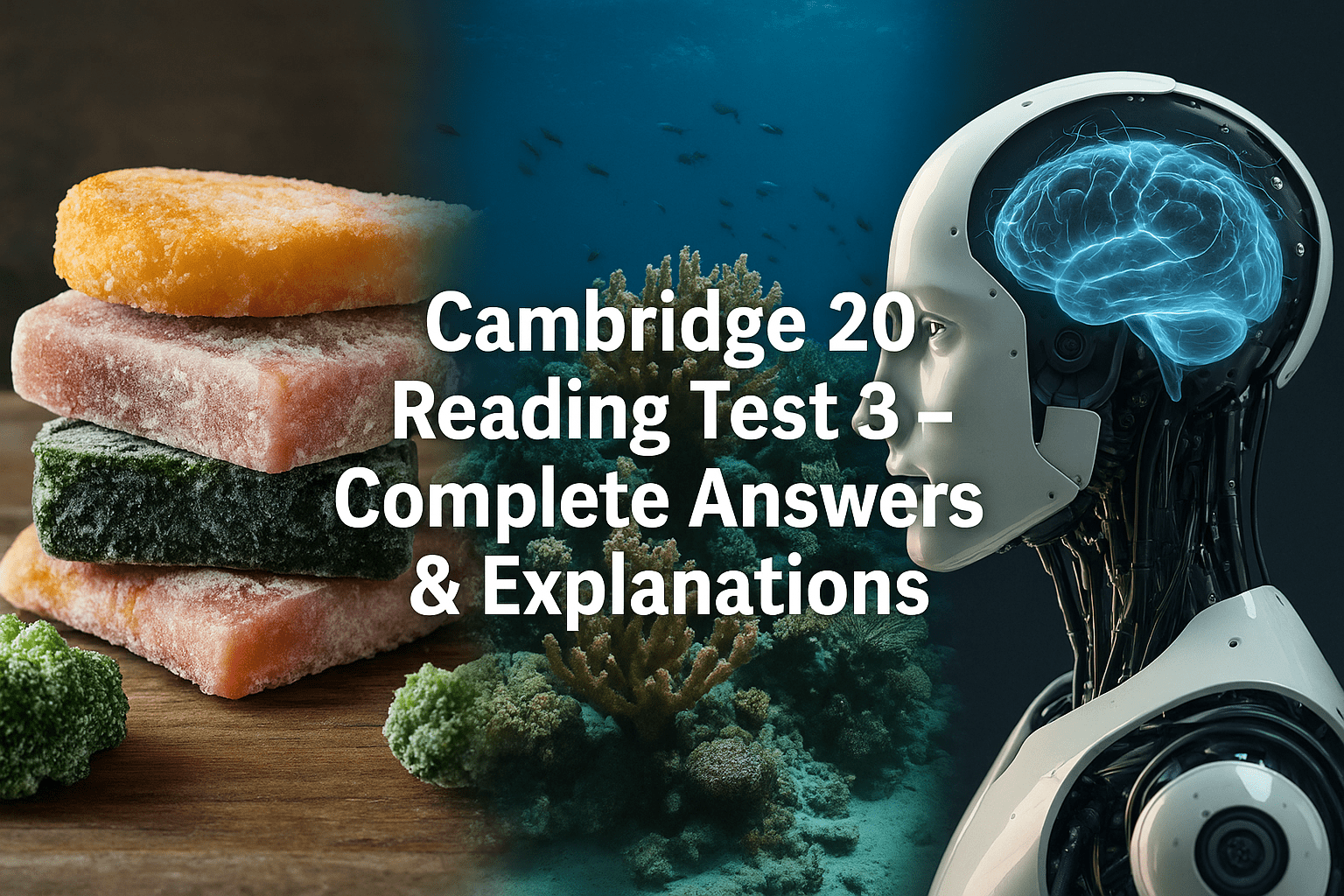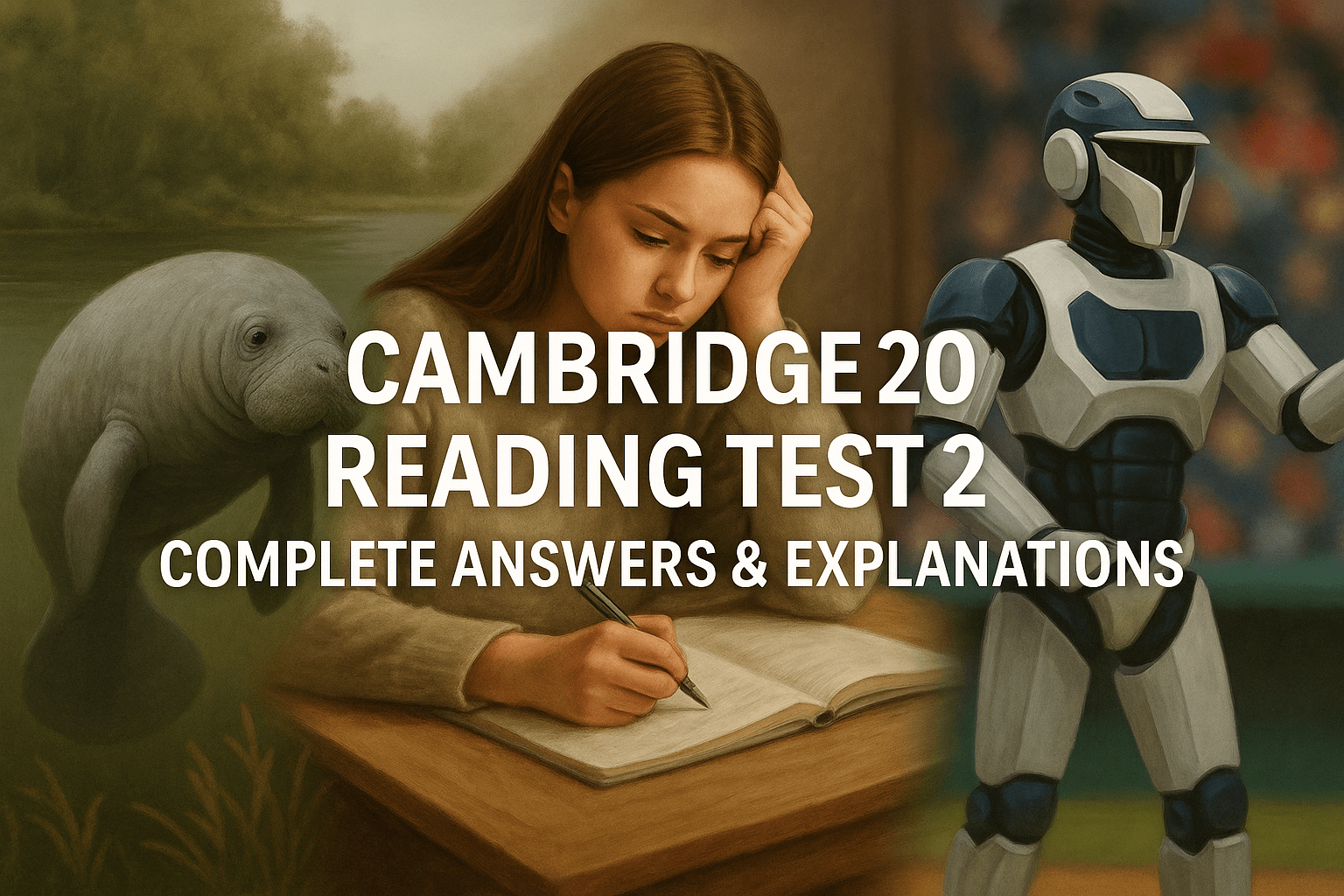In Cambridge IELTS 20 Reading Test 1 Passage 3, titled “How Stress Affects Our Judgement”, you’ll explore how stress alters human decision-making—sometimes for better, but often for worse. This passage reveals the results of neuroscience experiments involving firefighters and students, examining how pressure impacts our ability to process information. In this blog, we’ll break down each question type, provide clear explanations and correct answers, and offer IELTS Reading strategies to help you reach Band 7.0+.
Understanding the Passage
The passage discusses how humans make decisions under stress. Researchers studied firefighters and students to understand how stress changes the way we respond to information—especially negative news. Findings showed that under stress, people become more sensitive to threats and more likely to adjust their beliefs in response to bad news, but not good news. This shift is linked to evolutionary survival mechanisms but can be problematic in today’s world of social media and constant digital stimulation. The passage finishes by emphasising that positive emotions are also contagious and can be used to counteract mass panic and promote solutions.
Question-by-Question Explanation and Answers
Questions 27–30: Multiple Choice
27. In the first paragraph, the writer introduces the topic by:
Answer: C – mentioning a challenge faced by everyone
🧠 Explanation: The paragraph discusses common life situations where we must make decisions under pressure, a relatable challenge.
28. What point does the writer make about firefighters in the second paragraph?
Answer: A – The regular changes of stress levels in their working lives make them ideal study subjects
🧠 Explanation: Their varying levels of stress presented the perfect conditions for the experiment.
29. What is the writer doing in the fourth paragraph?
Answer: D – describing their methodology
🧠 Explanation: The paragraph outlines how the firefighters were surveyed and how the researchers recorded changes in belief.
30. In the seventh paragraph, the writer describes a mechanism in the brain which:
Answer: C – produces heightened sensitivity to indications of external threats
🧠 Explanation: The passage explains that stress boosts our learning response to fear-based signals.
Questions 31–35: Sentence Completion with Endings
31. At times when they were relaxed, the firefighters usually
Answer: B – took relatively little notice of bad news
🧠 Explanation: When relaxed, they were more optimistic and ignored bad news.
32. The researchers noted that when the firefighters were stressed, they
Answer: G – thought it more likely that they would experience something bad
🧠 Explanation: They altered their beliefs more in response to bad news under stress.
33. When the firefighters were told good news, they always
Answer: F – behaved in a similar manner, regardless of the circumstances
🧠 Explanation: Their response to good news remained unchanged whether stressed or not.
34. The students’ cortisol levels and heart rates were affected when the researchers
Answer: E – put them in a stressful situation
🧠 Explanation: The public speaking scenario raised their stress levels.
35. In both experiments, negative information was processed better when the subjects
Answer: D – were feeling under stress
🧠 Explanation: Stress triggered greater awareness and reaction to bad news.
Questions 36–40: Yes/No/Not Given
36. The tone of the content we post on social media tends to reflect the nature of the posts in our feeds.
Answer: YES
🧠 Explanation: The passage explains how positive or negative posts affect subsequent behaviour.
37. Phones have a greater impact on our stress levels than other electronic media devices.
Answer: NOT GIVEN
🧠 Explanation: Phones are discussed in relation to stress, but no comparison is made with other devices.
38. The more we read about a stressful public event on social media, the less able we are to take the information in.
Answer: NO
🧠 Explanation: The passage says people absorb negative information more, not less, during stress.
39. Stress created by social media posts can lead us to take unnecessary precautions.
Answer: YES
🧠 Explanation: The passage cites cancelled trips and sold stocks due to social media-fuelled fear.
40. Our tendency to be affected by other people’s moods can be used in a positive way.
Answer: YES
🧠 Explanation: It ends by stating that hope is also contagious and can inspire positive action.
Why This Passage Is Important
This passage challenges you to follow a complex argument and understand how stress affects perception and behaviour. It tests your ability to interpret scientific findings, distinguish between fact and opinion, and decode underlying messages—a vital skill for scoring Band 8 or higher.
Tips for Tackling This Passage
-
Skim First, Then Scan: Understand the structure before tackling the questions.
-
Highlight Keywords: Words like “stress,” “threat,” and “good/bad news” appear frequently.
-
Watch for Shift Words: Words like “however,” “but,” and “in contrast” signal key transitions.
-
Avoid Assumptions in Yes/No/Not Given: Focus only on what the passage says, not what you infer.
Further Practice & Resources
Final Thoughts
The third passage in Cambridge IELTS 20 Reading Test 1 offers powerful insights into how our minds function under stress. By mastering this passage, you’ll be better prepared to handle scientific reading texts with psychological and social themes. It’s not just test prep—it’s a deeper understanding of human behaviour.
💡 Want us to cover Passage 2 in video or PDF format? Drop a comment and let us know!






2 Responses